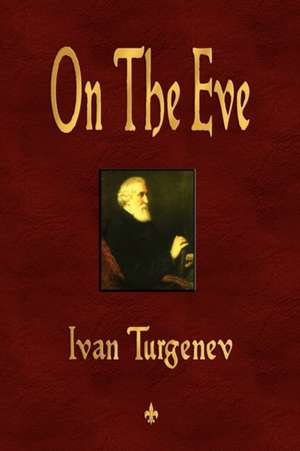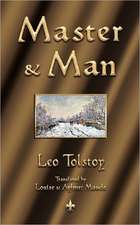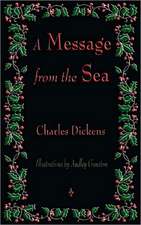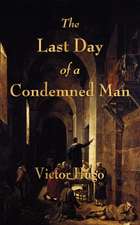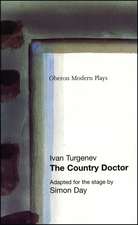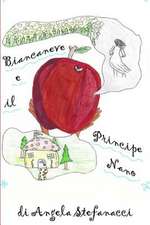On the Eve: A Story That Tells You How to Be One
Autor Ivan Turgeneven Limba Engleză Paperback – 28 ian 2010
Vezi toate premiile Carte premiată
National Jewish Book Award (2012)
| Toate formatele și edițiile | Preț | Express |
|---|---|---|
| Paperback (5) | 56.46 lei 3-5 săpt. | |
| – | 56.46 lei 3-5 săpt. | |
| Alma Books COMMIS – 19 feb 2019 | 57.98 lei 3-5 săpt. | +11.19 lei 7-13 zile |
| – | 67.13 lei 3-5 săpt. | |
| Watchmaker Publishing – 28 ian 2010 | 70.78 lei 6-8 săpt. | |
| Bibliotech Press – 17 mai 2022 | 103.46 lei 6-8 săpt. | |
| Hardback (1) | 373.15 lei 3-5 săpt. | |
| Outlook Verlag – 3 apr 2018 | 373.15 lei 3-5 săpt. |
Preț: 70.78 lei
Nou
Puncte Express: 106
Preț estimativ în valută:
13.54€ • 14.14$ • 11.21£
13.54€ • 14.14$ • 11.21£
Carte tipărită la comandă
Livrare economică 04-18 aprilie
Preluare comenzi: 021 569.72.76
Specificații
ISBN-13: 9781603863025
ISBN-10: 1603863028
Pagini: 188
Dimensiuni: 152 x 229 x 11 mm
Greutate: 0.28 kg
Editura: Watchmaker Publishing
ISBN-10: 1603863028
Pagini: 188
Dimensiuni: 152 x 229 x 11 mm
Greutate: 0.28 kg
Editura: Watchmaker Publishing
Caracteristici
Follows the success of other Turgenev titles in the Alma series such as Fathers and Children, Smoke and Virgin Soil
Notă biografică
Ivan Sergeyevich Turgenev (1818 - 1883) was a Russian novelist, short story writer, poet, playwright, translator and popularizer of Russian literature in the West. His first major publication, a short story collection entitled A Sportsman's Sketches (1852), was a milestone of Russian realism and his novel Fathers and Sons (1862) is regarded as one of the major works of 19th-century fiction. Turgenev's artistic purity made him a favorite of like-minded novelists of the next generation, such as Henry James and Joseph Conrad, both of whom greatly preferred Turgenev to Tolstoy and Dostoyevsky. James, who wrote no fewer than five critical essays on Turgenev's work, claimed that "his merit of form is of the first order" (1873) and praised his "exquisite delicacy", which "makes too many of his rivals appear to hold us, in comparison, by violent means and introduce us, in comparison, to vulgar things" (1896). Vladimir Nabokov, notorious for his casual dismissal of many great writers, praised Turgenev's "plastic musical flowing prose", but criticized his "labored epilogues" and "banal handling of plots". Nabokov stated that Turgenev "is not a great writer, though a pleasant one" and ranked him fourth among nineteenth-century Russian prose writers, behind Tolstoy, Gogol and Anton Chekhov, but ahead of Dostoyevsky. His idealistic ideas about love, specifically the devotion a wife should show her husband, were cynically referred to by characters in Chekhov's "An Anonymous Story".
Recenzii
A deep and penetrating diagnosis of the destinies of the Russia of thefifties.
Premii
- National Jewish Book Award Finalist, 2012
